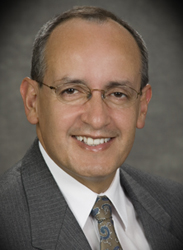
The 2018 AACRAO Annual Meeting will have multiple opportunities for conversations focused around global trends in education starting with the Opening Plenary speaker Francisco Marmolejo, Lead, Global Solutions Group on Tertiary Education & Lead Education Specialist for India, The World Bank Group. AACRAO spoke to him ahead of his upcoming appearance.
A “learning crisis”
“There’s a learning crisis in the world in both lower grades and higher education,” Marmolejo said. “Higher education is experiencing and will continue to experience tremendous expansion -- especially in low and middle-income economies. The share of higher education is going to be larger in developing countries than in developed countries, and that will define the future of higher education.”
These demands are bringing to light the importance of addressing issues such as accreditation, quality assurance, and college ranking, Marmolejo noted.
“Higher education is an increasingly complex sector that will only continue to expand and diversify,” he said. “At the same time, societies are beginning to understand the limitations of what higher ed can and cannot do.”
Nationalism and international mobility
Studies such as Open Doors and others demonstrate that there is increasing competition for students who wish to study abroad.
“The U.S. is no longer the only game in town,” Marmolejo said. “The share of international students coming to the U.S. will shrink proportionally, and that’s a significant wake-up call for higher ed in the U.S. What used to be taken for granted in the past is not the case any more.”
Other countries are aggressively developing packages to attract the lucrative market of students trying to study abroad. Where these countries have national internationalization strategies, policies and campaigns to increase international enrollment, U.S. institutions have no formal, collective policy and each institution must recruit individually.
“Of course, higher education in the U.S. continues to be a big dream for many parents and students in terms of opportunity, but we can’t take for granted that will always be the case," Marmolejo said. “These other efforts are very attractive to students.”
An important conversation
In his capacity with the World Bank, Marmolejo works with education ministries around the world to provide technical support to more than 80 projects to expand higher education systems, improve quality assurance, and connect governments with international agencies about policy issues relevant to higher education. Previously, he served as founding Executive Director of the Consortium for North American Higher Education Collaboration (CONAHEC), a network of more than 160 higher education institutions primarily from Canada, the U.S. and Mexico, based at the University of Arizona (UA), where he also worked as Assistant Vice President. At UA, he was Affiliated Researcher at the Center for the Study of Higher Education and Affiliate Faculty at the Center for Latin American Studies.
“I’m very excited about the opportunity to speak at the AACRAO conference,” Marmolejo said. “I know how important the roles of registrars, enrollment, and admissions administrators are to universities. These are increasingly sophisticated roles and this organization has a lot of respect internationally. I look forward to interacting with the membership.”
Early registration for the 2018 AACRAO Annual Meeting is open now. Register now to join us March 25-28th at the Orlando World Center Marriott.